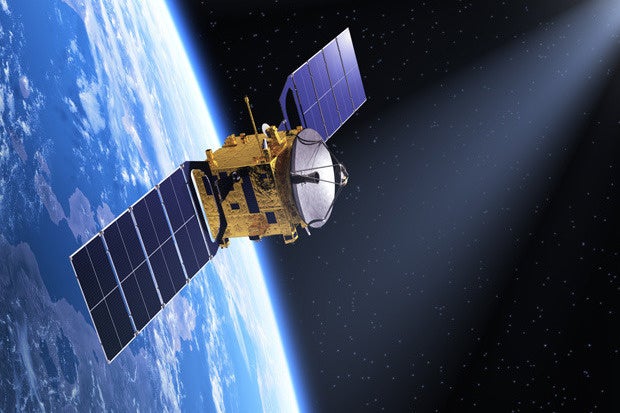JoyalHD
Member
- Joined
- 2 Oct 2015
- Messages
- 307
- Reaction score
- 76

Broadband satellite provider ViaSat has said that the first of its next-generation 1 terabit per second communications satellites are slated for delivery in 2019.
Manufacturing on the first two satellites is in progress with its partner Boeing, the company says.
The new ViaSat-3, as the three-satellite flock is going to be called, will be capable of “delivering a 100 Mbps, or more, residential Internet service,” offering Wi-Fi “to the billions of unconnected people in emerging markets,” the company says in a press release on its website.
Capacity
When launched, the first two satellites will provide twice the total network capacity of the roughly “four-hundred commercial communications satellites in space today combined,” says ViaSat.
Each of the Viasat-3 satellites will be able to throughput over 1 terabit per second, the company claims.
Coverage
The Americas and Europe will be the first coverage areas, from the first of three satellites launched. Those are the most economically developed areas and likely most eager to pay for the service.
EMEA, or Europe, Middle East and Africa, will footprint the second zone. And, later, a third satellite will cover the Asia-Pacific region, the company says.
Market
High-definition video streaming “at scale” will be possible with ViaSat-3, the company claims.
ViaSat says its market will not just be the impoverished billions of the developing world, many of whom don’t currently have access to Internet infrastructure at all, but others who can use remote Internet.
That includes aviation. Aircrafts could make use of “hundreds of megabits of in-flight connectivity services and video streaming” per plane, the company says. Airlines are keen to increase speeds to meet passengers' expectations.
Examples of Internet buyers in the aviation sector include commercial operators, corporate jets, and “high-value government aircraft,” ViaSat says.
Maritime, oceanic, exploration, oil and gas platforms, disaster recovery, and news are other sectors that will express interest. They would also benefit from the increased bandwidth.
Competitors
Competitor Inmarsat is also racing to bring global commercial broadband to market. It says that its Global Xpress, or GX, “commercial service introduction” was completed in December. I’ve written about Global Xpress before, when it promised 50 Mbps download speeds in 2014.
Hughes and EchoStar’s XIX is planned for launch in late 2016, according to EchoStar.
Hughes says its existing JUPITER system offers “high-throughput terminals of up to 100 Mbps capacity,” according to a Hughes press release.
History
ViaSat’s Exede high-capacity satellite service, using Viasat-1, was introduced in 2012. That service advertised 12 Mbps during peak hours at the time, with 140 Gbps total throughput capacity. It’s the service you see on airlines such as JetBlue.
Via-Sat 2, also a Boeing-produced satellite, will be launched by SpaceX in late-summer 2016, according to a ViaSat statement made in early 2015.
Technology
Network processing with ViaSat-3 will use the cloud to simplify infrastructure and costs, the company says.
And the word ’costs’ brings up an interesting point.
While ViaSat hasn’t announced pricing for the ViaSat-3 service, which is usual for a forward-looking project that’s deliverable years into the future, interestingly, in its press release, it does say network capacity costs will be “a fraction of what they are today.”
ViaSat-2, scheduled for launch this year and service in 2017, promises something called “double the bandwidth economics” over the current ViaSat-1.
So anticipate that pricing will fall over time. We may all be streaming media on a desert island at the end of the decade, if we choose.
Source of this article: Next-gen 100 Mbps satellite broadband expected by 2019